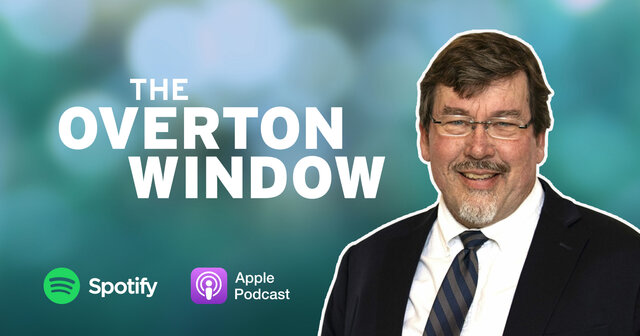
The ongoing debate in Wisconsin over the role of citizen-led initiatives and referendums in lawmaking has sparked tension. Patrick McIlheran, Director of Policy at the Badger Institute, opposes instituting referendums, while other organizations support this move as a means of empowering the electorate. McIlheran breaks down his reasoning on The Overton Window Podcast.
"The question we’re facing is whether Wisconsin should do as Michigan and California have done, which is begin initiating legislation through referendums, rather than letting the legislature be — as the Constitution specifies — the lawmaking body," McIlheran says. He foresees the shift weakening the role of elected lawmakers, altering the balance of power by making it more challenging for the legislature to function.
The state has a history of divided governance. Democratic governor, Tony Evers, “has been there for — well, since he won in 2018. Every moment of that tenure faced a Republican majority in the legislature — a fairly strong one; they were almost veto-proof for a number of years." Despite Evers' expansive vision of government, he has struggled to secure legislative support for his policies. Rather than negotiating with lawmakers, Evers is advocating for citizen-led initiatives.
“The people do have a voice — it's called the legislature,” McIlheran says. He argues that the system in place provides ample opportunity for citizen influence. While recognizing the benefit of citizens exerting pressure on their elected representatives, he’s concerned that a direct referendum process would bypass the constitutional system of checks and balances.
Wisconsin is unique as one of the few states still operating under their original constitution. “We never had a wholesale rewrite of it. What we got is from 1848, amended cautiously and a number of times over the years,” McIlheran says. This long-standing document is a key to Wisconsin’s success. He argues that cautious amendments have served the state well without the need for drastic shifts in the way laws are made.
On the other hand, those who advocate for citizen-led initiatives believe that expanding the referendum process would offer a more direct form of democracy, enabling citizens to take a more active role in lawmaking when the legislature seems unwilling or unable to pass popular measures. This idea is not without its challenges, however.
“It costs a lot of money to promote a ‘yes’ vote. It’s a process that advantages those who are already in organized interest with access to money, media, attention, volunteers,” McIlheran says, countering the assumption that referendums are driven by grassroots movements. “It’s incredibly difficult to organize previously unorganized people around any new idea," he adds. This leaves ordinary citizens with little chance of making their voices heard.
“Once statute is enacted by referendum, it can be very hard to change. I believe in California, for instance, it can only be changed by another referendum,” he says. This, he argues, creates a rigidity in the lawmaking process that doesn’t allow for easy adjustments. "What kind of legislature is going to say, ‘Yes, the people have already spoken conclusively on what statute should be, but we’re going to go change it’?”
The legislative process, which involves debate, amendments, and the governor’s veto power, ensures thoughtful and responsible policy decisions. McIlheran urges caution and emphasizes that any reform should prioritize the long-term stability and effectiveness of the state's democratic institutions. "Don’t go making deep changes unless you’re certain of what the effects are going to be," he says.
The debate over referendums in Wisconsin boils down to competing visions of democracy. While advocates argue that citizen-led initiatives empower the people, McIlheran and others believe that the current system, with its emphasis on legislative deliberation and constitutional checks, offers a more sustainable model of governance. As the conversation continues, the future of Wisconsin's democracy could hinge on finding the right balance between direct citizen involvement and representative government.
Listen to the full conversation on The Overton Window Podcast.
Permission to reprint this blog post in whole or in part is hereby granted, provided that the author (or authors) and the Mackinac Center for Public Policy are properly cited.
Get insightful commentary and the most reliable research on Michigan issues sent straight to your inbox.

The Mackinac Center for Public Policy is a nonprofit research and educational institute that advances the principles of free markets and limited government. Through our research and education programs, we challenge government overreach and advocate for a free-market approach to public policy that frees people to realize their potential and dreams.
Please consider contributing to our work to advance a freer and more prosperous state.

Donate | About | Blog | Pressroom | Publications | Careers | Site Map | Email Signup | Contact